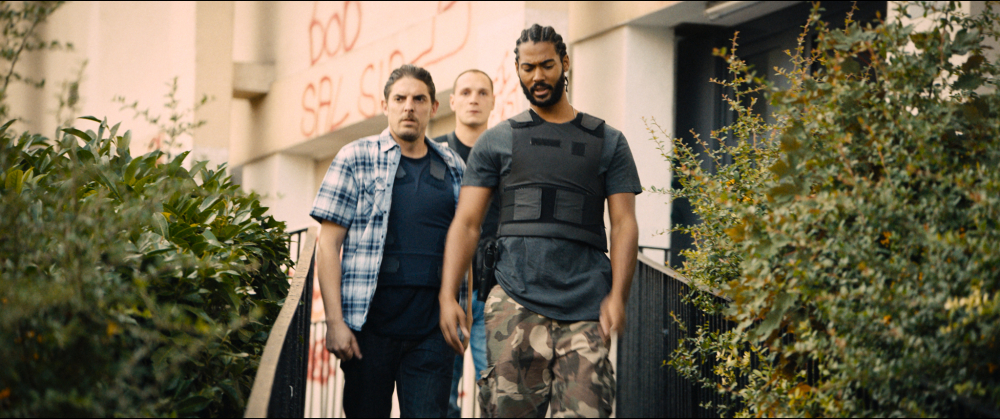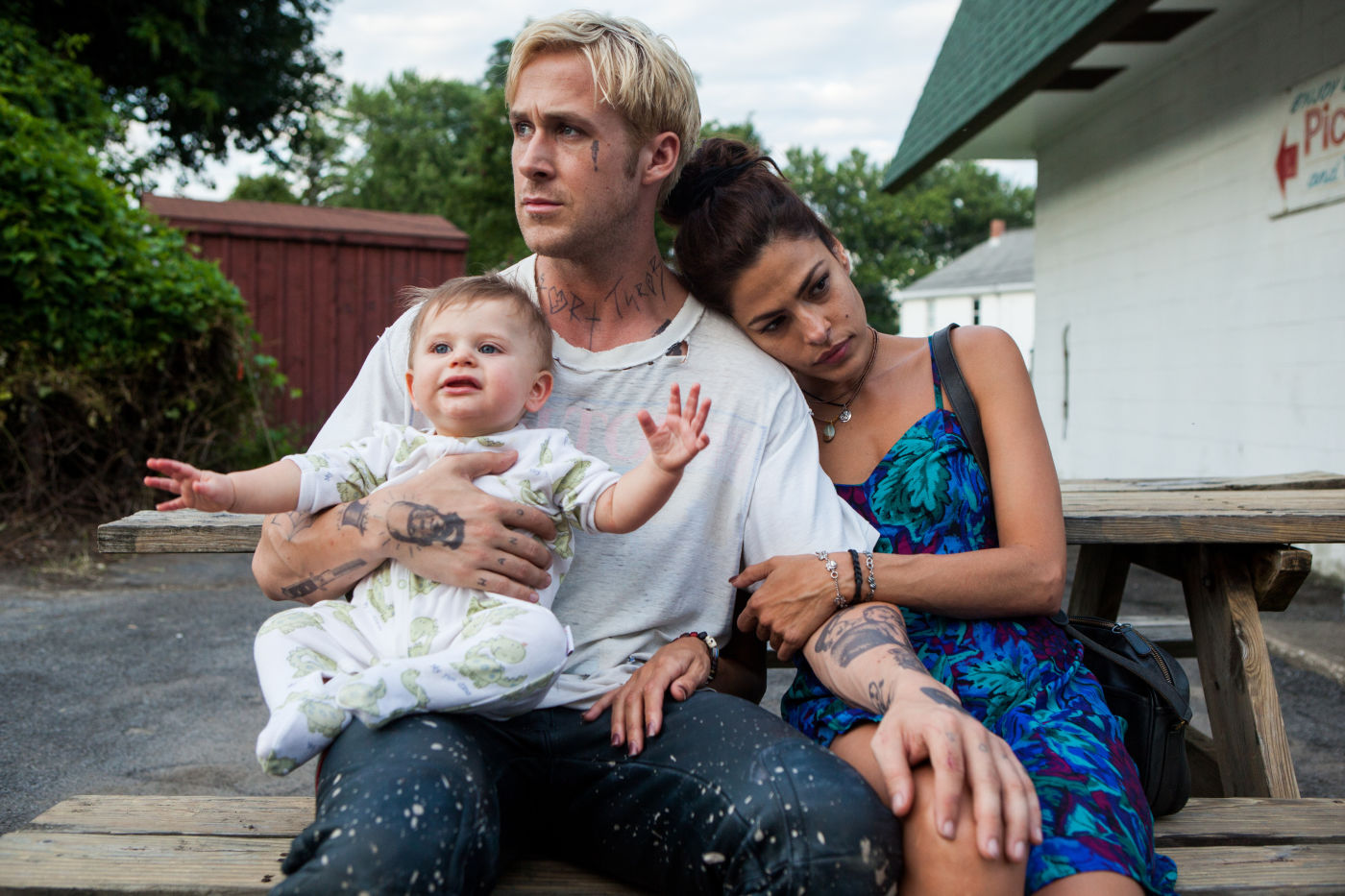In a remote corner of Paris, there’s a neighborhood known as Les Misérables, named such because this locale is where Victor Hugo lived when he wrote his decidedly unmusical novel. The title is apt, however, as the neighborhood itself isn’t exactly un-miserable. In the United States, we might call this “The Projects,” an area of the city with a concentrated minority population and a much-higher-than-average occurrence of crime … so much in fact that the police join in. And that is where we are today.
The film focuses on three cops: the transfer, Stéphane (Damien Bonnard), the tool, Gwada (Djebril Zonga), and the piece of shit, Chris (Alexis Manenti). The piece of shit is in charge, of course. He happily encourages a nickname that might offend other cops, “Pink Pig.” And, true-to-metaphorical-swine, he loves to patrol/harass, often targeting teenage girls. He’s a protest march waiting to happen. Gwada pretty much goes along passively with the Pink Pig Show. The noob, however, might not … and he doesn’t like the name “Greaser” Chris has given him. Maybe in French it’s not the word.
Cop films that don’t get into it right away feel long, and Les Misérables is no exception. Yes, yes, movie, we understand that Greaser doesn’t jive with Chris or the Chris agenda but feels too vulnerable to do anything about it. And, sure, you gotta set up the neighborhood and establish the combination fear/hostility that accompanies the presence of Pink Pig and the Oinkers. Get on with it.
Finally, a plot shows up about 30-40 minutes in: A lion cub is missing from the local circus. If that description bugs you, get in line. I have lived half-a-century exclusively in major metropolitan areas, yet have no frame of reference for “local circus.” “Oh, you know, the guys on the block over with the big tent, a trapeze, and several zoo animals; they’re in-between the 7-11 and the First Church of Dotard.” This must be a French thing; I dunno anybody who owns a lion (until I saw “Tiger King,” that is). The lion theft sets off a series of events that eventually pits both cops against citizens and cops against morality. I’ll give Les Miz this: the more that unfolded, the better it got.
The plot eventually boils down to a street war with one cop who is completely divorced from morality, another who probably knows the right thing to do but won’t do it, and a third who clearly knows what is right yet has to weigh every decision as either the moral one or the one in which he keeps earning a paycheck. That’s rough, and I’m kinder to this film in retrospect. On the screen and in the moment, I pleaded for Greaser to behave humanely as he was the only one of the trio capable of such, but as someone with a recent career of employment issues, I understand fully one who might not choose a moral path if the other one lets you feed your family.
Les Misérables is probably the second-best tale with that particular name. Unfortunately, there exist at least four or five iterations of the Victor Hugo fiction that I prefer to the film I’m reviewing now. This Les Misérables backended moving in favor of gripping (eventually). Given the chance to explore the lives and loves of any of the miserables, it chose instead to focus on the police, who mostly exist to generate misery rather than appease it. Hence, the film invests in tension rather than emotion … which seems an odd and misplaced choice for a film with the title Les Misérables, non?
Things don’t go down as they should
A fairy tale gets flipped where it stood
With huffing and puffing
And tables-turned stuffing
Three little pigs blew up a ‘hood
Rated R, 104 Minutes
Director: Ladj Ly (that’s a great name)
Writer: Ladj Ly & Giordano Gederlini & Alexis Manenti
Genre: Miserable
Type of being most likely to enjoy this film: Miserables
Type of being least likely to enjoy this film: Less miserables




